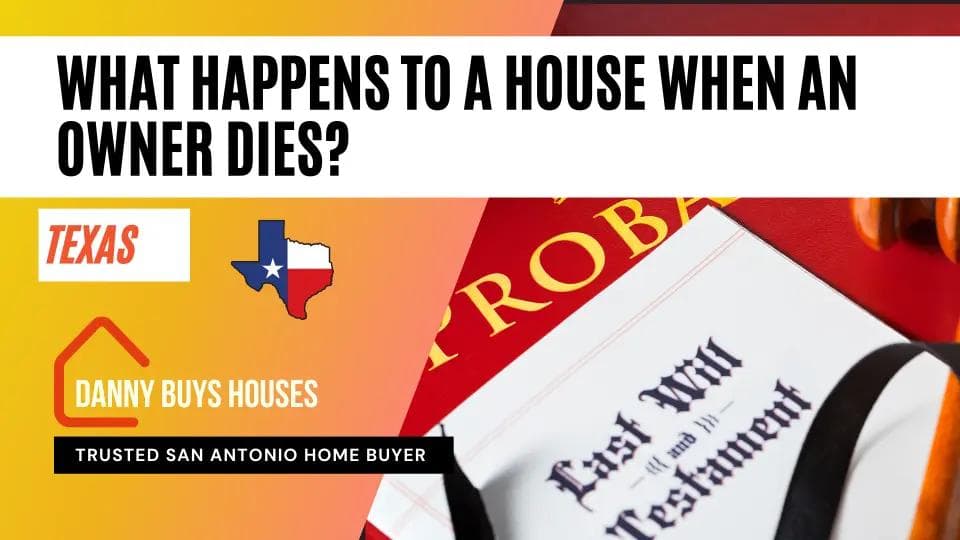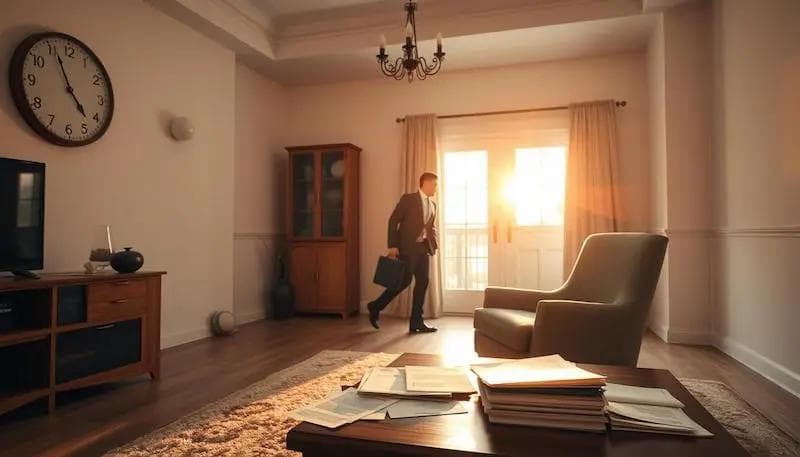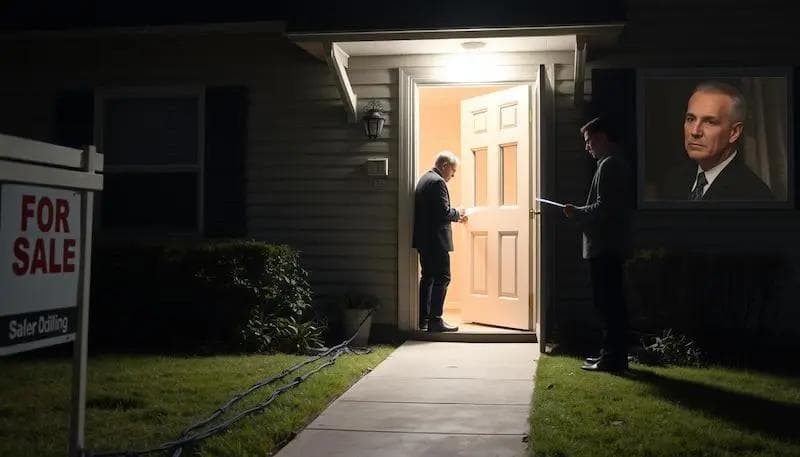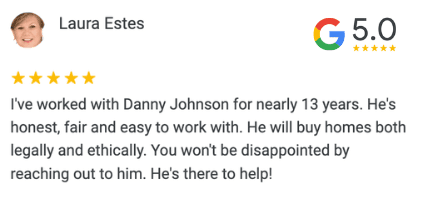
What happens to a house when the owner dies?
By Danny Johnson | Updated 9/3/2024, 7:56:21 AM
Discover what happens to a house when the owner dies. Learn about transferring ownership, mortgages, and how heirs can inherit or manage real estate.
- What Happens to a House When the Owner Dies?
- Key Takeaways
- The Probate Process and Property Transfer
- Understanding Probate in Real Estate
- Role of the Personal Representative
- Identifying and Inventorying Assets
- Paying Debts and Distributing Assets
- What Happens to Real Estate When the Owner Dies: Legal Scenarios
- When There's a Will
- Dying Intestate: No Will Scenarios
- Joint Ownership and Rights of Survivorship
- Transfer-on-Death Deeds and Trusts
- How to Sell an Inherited House Without Probate
- What Happens to a Jointly Owned Property if One Owner Dies?
- Can you sell a house with everything in it?
🗂 Table of Contents
What Happens to a House When the Owner Dies?
Losing a loved one is hard. The pain was felt by Jose G. He said, "When my grandmother passed away, our family felt the pain of grief and the worry of what would happen to her home. It was full of memories, laughter, and love. We didn't know what to do about her house. We learned about probate and inheritance, realizing how important it is to know how to transfer property after death."
In this article, you will learn how you can handle the transfer of house whether to you or to a buyer. This is a hard time but we hope to make it a little easier for you.

When a homeowner dies, their property becomes part of their estate. The house's future depends on things like a will, joint ownership, and state laws. In Texas, a house owned by one person might be sold to pay bills or share among heirs. This can be hard, especially when you're still trying to come to terms with your loss.
The probate process is key in figuring out what happens to a house after someone dies. It's a court process that pays debts, closes accounts, and shares out assets. While the property is being transferred, it can't stay in the deceased's name.
Key Takeaways
- Property ownership usually goes to heirs based on a will or state laws
- Probate is usually needed to transfer ownership and settle the estate
- In certain circumstances it is possible to sell the home without probate
- Joint ownership with survivorship rights skips probate
- Trusts manage assets without probate
- Estate planning helps with a smooth property transfer and avoids issues
- Challenging a will or trust needs strong evidence and legal help
- State laws decide on asset sharing if there's no valid will
If you are in a rush to sell a house, even if it needs a lot of repairs, give me a call. I buy houses cash and can close within 10 days. A good option to know about!
The Probate Process and Property Transfer
When someone dies, their property often goes through probate court. This legal process makes sure the estate's assets are given to the right people. In Washington State, probate can be a long and complex process.
Understanding Probate in Real Estate
Probate in real estate involves checking the will and picking a personal representative. This can take months or even years, based on the estate's size.

Role of the Personal Representative
The personal representative, or executor, takes care of the estate in probate. They find out what assets there are, pay off debts, and give property to the right people. This job needs careful handling of assets and following the law.
Identifying and Inventorying Assets
Creating a list of the deceased's assets is a key step in probate. This list includes things like real estate, bank accounts, and personal items. In Washington State, if the deceased leaves a spouse and kids, their property is split equally among them.
Paying Debts and Distributing Assets
Before giving out assets, the personal representative must pay off the estate's debts. This includes paying any mortgage on the deceased's home. Once debts are paid, the remaining assets are given out based on the will or state law.
- Probate can last from months to years
- Non-probate methods like trusts can simplify property transfer
- Consultation with a probate attorney is recommended
It's important to understand the probate process for a smooth property transfer after someone dies. Even though it's complex, with the right planning and legal advice, it can be easier to get through this tough time.
What Happens to Real Estate When the Owner Dies: Legal Scenarios
When someone dies, what happens to their property depends on legal rules. Estate planning is key in deciding how property moves after death. Let's look at the different ways it can happen and what they mean.
When There's a Will
A will makes passing on property easier. The person named in the will gets the house after going through probate. This process can take from three months to a few years. The executor might sell the house, working with a probate sale expert or by selling to a cash home buyer (which is usually chosen when the house needs a lot of repairs). Some people think probate sales are all cash. That's not true. The estate can sell the house to someone getting a loan.

Dying Intestate: No Will Scenarios
If there's no will, the laws of intestate succession take over. A court picks an administrator for the estate. The state decides who gets the property, usually the spouse and kids first. If the house is to be sold, the estate administrator can sell the house with approval from the court. This process can take a long time and get complicated.
Joint Ownership and Rights of Survivorship
Joint tenancy with survivorship rights means the property goes to the other owner automatically. This is what happens to a house and other property when a husband dies or a wife dies. This skips probate, making it a good choice for couples. The last owner gets everything and is in charge of any mortgage.
Transfer-on-Death Deeds and Trusts
Transfer-on-death deeds let property go straight to a chosen person without probate. Living trusts also make passing on property easier and cut down on costs. Both give you control over who gets your property.
According to Marguerite Broussard from Wood Edwards LLP, "When you use a will to distribute your property, you do not have to worry about retitling and transferring property. A will is also usually simpler to prepare, so it will cost less than establishing a trust. On the other hand, trust assets avoid probate."
It's important to know about these options for estate planning. Each choice affects taxes, mortgages, and who gets the property. Talking to a lawyer can help you pick the right one for you.
How to Sell an Inherited House Without Probate
How long it takes to sell a property with probate can be drastically different than selling one without probate.
Selling an inherited property without probate can save time and money. There are several strategies to avoid this long process. It can take from 2 months to several years.
Using a transfer-on-death deed is a good method. This document lets property go directly to the beneficiaries when the owner dies. Another way is joint tenancy, where the last owner gets the property automatically.
Some states have easy ways for small estates. Heirs can use a small estate affidavit (aka an Affidavit of Heirship) to claim property without full probate. Living trusts are also popular, holding property and transferring it without court help.
- Transfer-on-death deed
- Joint tenancy
- Small estate affidavit
- Living trusts
For a fast real estate sale, think about using cash house buying companies. These companies offer cash offers right away, making quick deals possible.
When selling an inherited house, watch out for costs. In Texas, sellers pay about 5% to 6% in real estate commissions. Other costs like repairs, closing fees, and property taxes can add up, possibly over $10,000 - $50,000.
To save more, consider discount real estate brokers or selling the property yourself. These choices can cut commission costs, keeping more of your inherited property's value.
What Happens to a Jointly Owned Property if One Owner Dies?
When one owner of jointly owned property dies, the situation can be complex. It depends on the type of ownership they had. Let's look at the different scenarios and what happens to property rights.
In joint tenancy with right of survivorship, the property goes to the remaining owners when someone dies. This is often chosen by family members or close partners. It makes passing on the property easy without the need for court approval.
According to Dan Rafter at Quicken Loans, "A joint tenancy with right of survivorship is an agreement between two or more people to share equal ownership of an asset, such as a house, and have equal rights to use and enjoy it. It’s the most common way of buying a home with a spouse, partner or family member."
Married couples often pick tenancy by the entirety for their property. This type of ownership works like joint tenancy but also goes to the surviving spouse automatically. In nine states, married couples can also choose community property ownership.
Tenancy in common is different. Each owner has their own part of the property. When one owner dies, their part goes into their estate and might need to go through probate. This can make transferring the property more complicated.
- Joint tenancy means equal ownership and automatic transfer to the survivors
- Tenancy by the entirety is for married couples only
- Tenancy in common may need probate for the deceased's share
It's important to know these differences for estate planning. The type of joint ownership affects how property is handled after someone dies. Talking to a real estate lawyer is a good idea to make sure your property rights are looked after.
Can you sell a house with everything in it?
You might wonder how to remove all of the items from the house after someone dies. Well, you might not have to.
Selling a house with all its contents is possible, especially in estate situations. This method, called an "as-is property sale," makes things easier for heirs. Estate sales are a common way to sell personal property and the house together.
In probate sales, selling a house with everything inside can make the process faster. This approach might change the sale price but is good for investors who want a ready-to-move-in property. It's important to value the personal property correctly to set a fair price.
When thinking about an as-is property sale, know about the tax and legal stuff for estate settlements. You'll need the right documents and to be open about everything. This way of selling can make things easier, but talking to a real estate expert is a good idea. They can help with the tricky parts of selling an inherited house with all its stuff.
If all of this is daunting, you might want to consider selling as is for cash. A house buying company like Danny Buys Houses can make you a cash offer within 24 hours. They will buy the house and allow you to leave any items you don't want. This way you can sell a house with everything in it. We get it. I can be hard to throw out the personal belongings of a loved one after they passed. We buy houses as is so you don't have to. Give us a call or fill out our fast cash offer form. We look forward to hearing from you.

AUTHOR
Danny Johnson
Owner and Founder at Danny Buys Houses
Danny Johnson is an experienced real estate investor who has been buying houses for cash since 2003. As owner of Danny Buys Houses, Danny's goal is to help homeowners sell their house fast, regardless of the situation, so they can move on with their life.
Danny has been featured in publications such as Forbes, Realtor.com, BiggerPockets, Yahoo Finance, US News, and more. He is also the author of the book 'Flipping Houses Exposed'.




